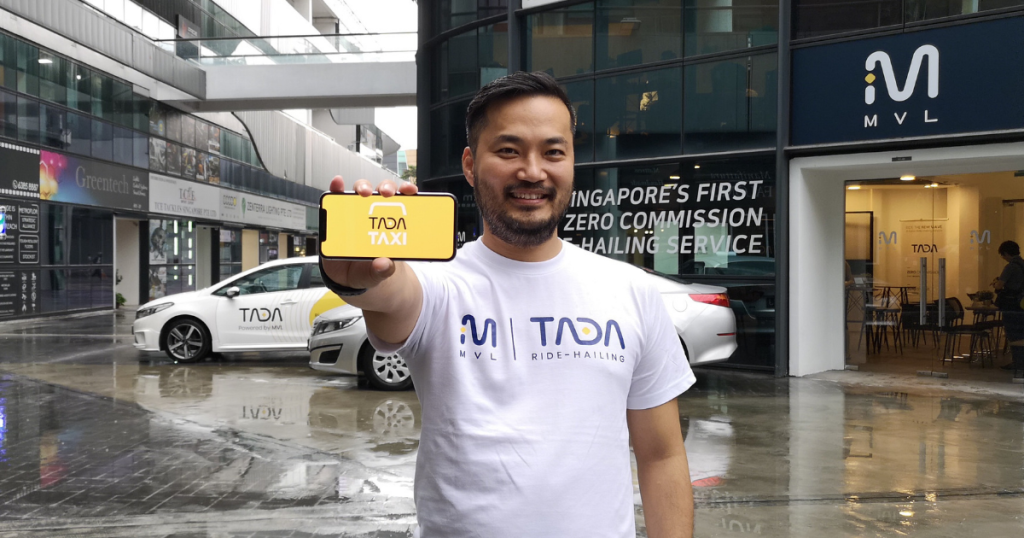When we hear discussions about blockchain, what usually comes to mind?
The recent crypto crash and price volatility, perhaps? Or an enthusiastic crypto fan spamming our social media feeds with predictions of what he bought going “to the moon”?
Blockchain is actually far more than just cryptocurrency. It’s a piece of technology that’s proving to have far more utility than just making someone rich overnight, and one particular company is showing us how blockchain technology can be used to build an entire ecosystem.
A look at MVL’s ecosystem
Many of us might have heard of TADA, a ride-hailing app that counts Grab, and Gojek among its competitors in Singapore. One of the selling points of TADA is that it takes no commission for its services.
But TADA itself is just one part of a larger ecosystem — MVL’s mobility blockchain ecosystem — and therein lies the secret of TADA’s business.
TADA does not charge commission because it does not need to. Instead, members of the MVL mobility blockchain system provide data, which MVL can then leverage to provide better offerings for everyone.
Companies that partner with MVL and TADA, such as insurance companies, will pay MVL a fee for access to MVL and TADA customers.
In fact, TADA and MVL’s founder Kay Woo has stated that TADA is “not here to compete with giants”, referring to fellow ride-hailing players Grab and Gojek, and is instead willing to work with these companies.
MVL envisions connecting all vehicle-related services to one ecosystem where participants perform actions to earn rewards while the data created through all the activities will be stored on blockchain and bring further value.
– Kay Woo, founder and CEO of MVL
As more companies join the MVL ecosystem, MVL receives more fees, while members of the MVL blockchain become more connected and offer better products for customers, further enlarging the MVL ecosystem.

This group is tied together through MVL’s blockchain ecosystem, including its native MVL token, which can be obtained by trading points obtained from interacting with other parts of the MVL system. The token itself is hosted on the Ethereum blockchain.
Points and coins can be stored within MVL’s own cryptocurrency wallet, known as ‘clutch’, which was launched earlier this year.
Building a family of companies
MVL has also been actively seeking out partnerships to expand its ecosystem. Earlier this month, MVL subsidiary ONiON Mobility signed a Memorandum of Understanding with TotalEnergies Marketing (Cambodia) to increase and enhance the use of electric vehicles (EVs) in Cambodia.
This partnership would allow ONiON to launch their mobility battery swapping hub station in two TotalEnergies Service stations, allowing for greater convenience for EV users and encouraging the use of such vehicles.
ONiON itself has also caused quite a stir in Cambodia, for creating their own e-tuktuk, an electric motorbike and auto-rickshaw. They are currently in operation in the capital of Phnom Penh, though there are plans to expand this to neighbouring regions as well.
They have also recently engaged Cardo as their digital trustee, in an effort to ensure greater transparency. Cardo will be responsible for distributing tokens according to MVL’s own schedule.
As the ecosystem is forming, Cardo provides a “safebox service” that allows all participants to connect with each other while complying with the regulations.
Cardo is a child company of one of the largest banks of Korea, and they have the strongest security protection for its custody service. With the highest level of security from fintech partners like Cardo, we can give an assurance of proper protection of MVL and its business.
– Kay Woo, founder and CEO of MVL
As part of this partnership with Cardo, MVL has also entered an anti-money laundering agreement with Cardo to ensure that management and security of their tokens is up to industry standards.
Expanding its reach with more partnerships
Lest we believe that MVL has already peaked, the company is also planning to expand their partnerships to more companies.
![INTERVIEW] Korean blockchain startup gears up to challenge Grab's monopoly](http://res.heraldm.com/phpwas/restmb_idxmake.php?idx=142&simg=%2Fcontent%2Fimage%2F2018%2F10%2F04%2F20181004000882_0.jpg)
While declining to name specific businesses, Kay suggested that there would be “more partnerships from the energy sector, car makers, and logistics companies in the near future.”
“These businesses are highly relevant to MVL’s plan of building a connected mobility ecosystem. We will not let go of our identity of mobility and this identity will only get stronger through the aforementioned potential partnerships.”
MVL is clearly not simply resting on its laurels. It has managed to create innovations in transport sectors throughout the region, and is looking to do even more. Kay represents a down-to-earth approach to business, where entrepreneurs carefully examine new technologies, and ask themselves how these can better the lives of others.
MVL’s role in the blockchain community has been simple and clear. We focus on solving real-world problems and connecting our solutions to the blockchain which creates a basis of trust among all participants.
By retaining this fundamental connection to the blockchain community, we are safe from the volatility of crypto and set ourselves apart from the typical blockchain projects that bear high risks.
– Kay Woo, founder and CEO of MVL
The ecosystem built by Kay is a prime example of why we should not judge a book by its cover. Kay shared how when TADA came out, many were skeptical about his business model of taking no commission from rides, with some even going so far as to call it a “scam”.
But fast forward to today, TADA has remained faithful to its promise. Their rides are still commission-free, and TADA is a means to an end to build something greater as a gateway into MVL’s connected ecosystem for mobility services, linked by blockchain technology.










